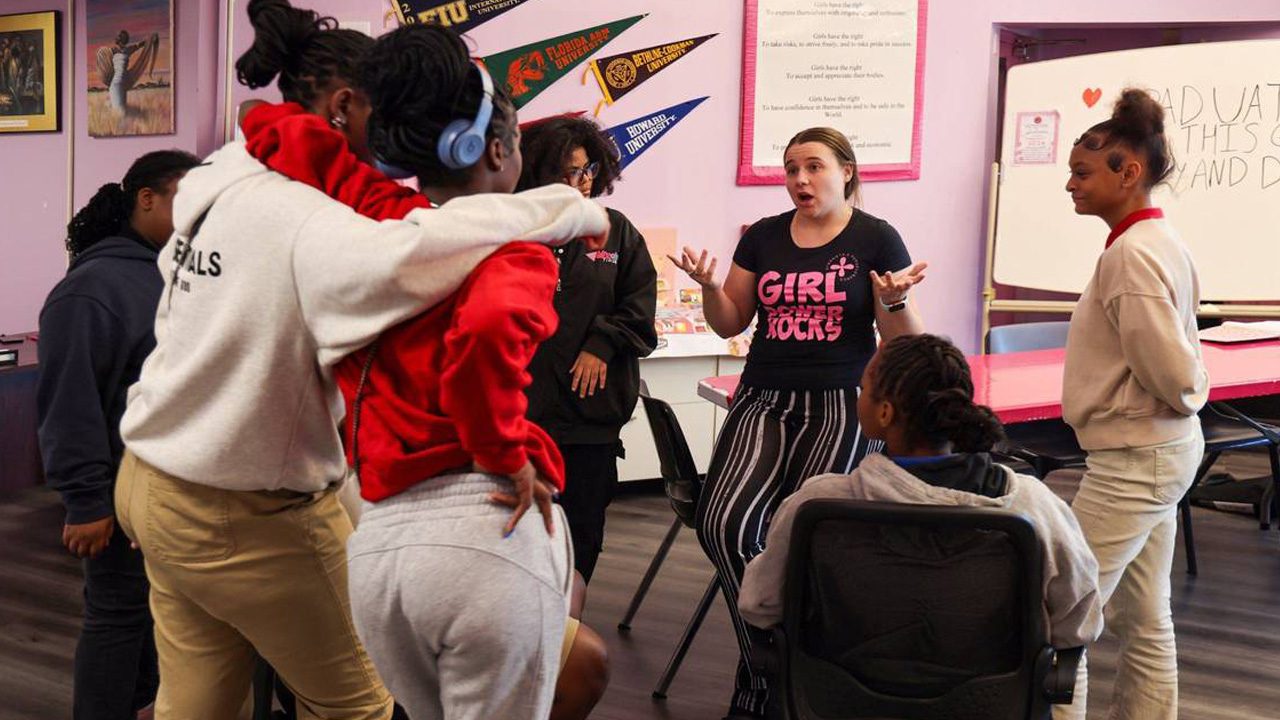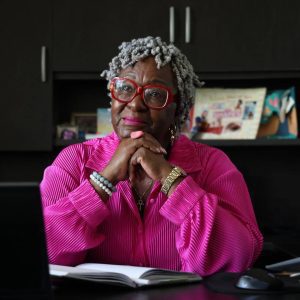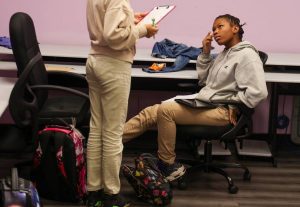
They were ‘at-risk’ girls. But she saw their promise and worked to change their story
Miami Herald | By Milena Malaver | October 22, 2024
Thema Campbell was raised in her Mama Hattie’s house, along with dozens of other children in rural Georgia. Some were family, some were friends and some were strangers, but each had a place in Mama Hattie’s home.
“She had a strict hand as far as discipline is concerned, but she could heal you if you got sick,” said Campbell, talking about her grandmother, Hattie Skinner Bacon, a wet nurse for white families.
Campbell moved to Miami in 1976 and now dedicates herself to improving the lives of girls in Miami-Dade County. She is the founder and CEO of Girl Power Rocks, which she started in 2000.
Girl Power Rocks has several programs dedicated to educating and empowering what Campbell calls “at-promise girls.”
“I’m talking about the girls that we used to call ‘at risk’, and we want to change that, because these girls have a lot of promise,” she said. “They’re so smart and they’re brilliant. And they’re resilient and persistent and funny and beautiful.”
Girl Power begins working with girls in middle school with after-school programs at Frank C. Martin, Brownsville and Homestead middle schools. The nonprofit also runs a choir for girls 11-17, a Sister Circle mentoring program that pairs girls with a mentor over 21 and a free summer STEAM workforce training camp for middle school girls.

Thema Campbell, founder and CEO of Girl Power Rocks, a Miami nonprofit that mentors middle and high school girls, photographed inside her office.
Campbell also started a program for first-time offenders called Girls Intervention Program Plus after realizing that these girls, ages 13- 17, were dealing with traumatic issues that were leading them down a “pathway to destruction.”
“Girls were getting arrested, and when they were arrested, we would not see them. They would disappear from our programs,” she said.
The program’s goal, which Campbell created in 2012, is to reroute young girls away from the juvenile justice system and get them on the right track. The program also helps girls who are vulnerable to human trafficking.
The program was originally designed for 12 weeks, but Campbell advocated for girls staying as long as needed.
“Sometimes, you don’t even see the slightest change for a whole year,” said Campbell.
More than 400 girls have gone through the program with a 98% completion rate. And, 100% of the girls enrolled were not re-arrested during the program year.
At graduation, graduates don pink caps and gowns and give a speech. Campbell says graduations are emotional for the entire staff “because they’ve formed a bond with each other, and it’s like a family.”
Every day after school, the girls are picked up by a van and brought over to the Culmer Community Action Center in Overtown where they have snacks, do their homework, listen to guest speakers and participate in “Girl Circle,” designed for girls who have experienced trauma.

Kayla, 16, a 10th grader, left, and Asante’, 14, an eighth-grader, participate in an after-school program at Girl Power Rocks.
Kayla, 16, has been in the program for nearly two years.
“Before I joined Girl Power, it was horrible…I had bad anger issues,” said Kayla. “When I joined, it made me realize I need to slow down on that and make a better example for my sister.”
Kayla has dreams of going to college and becoming a flight attendant, but also says she’s interested in doing hair.
Next to her was 14-year-old Asanté, who joked she had booked her hair appointment with Kayla months ago but still hasn’t had her hair done. Asanté said she hopes to go to college and has considered multiple careers including being a travel nurse, a singer and a writer.
“When I first knew school existed, my first word was probably college,” Asanté said.
Campbell recalled how one girl in the program would not utter a single word to her. She spent a year trying to get the girl to say hello.
“She was silent, her trauma and her abuse, that is how she dealt with it. She just wouldn’t open her mouth to say anything. Because when she had done that in the past, you know, she felt like being outspoken had caused whatever the trauma that had happened to her,” Campbell said.
When the girl finally said hello to her after a year, Campbell knew it was an important step.
“That’s what that program is for, is for the safe space for them to be able to find their voices and to learn to speak up and advocate for themselves,” Campbell said.
Campbell is working toward bringing Mama Hattie’s House to Miami by creating living spaces for girls who are aging out of the foster care system and are at higher risk for human trafficking.
Casa Valentina, another Miami nonprofit, also helps girls who’ve aged out of foster care to lead independent lives, through education and mentoring.
Florida ranks third in the U.S. for sex trafficking with over 70% of those victims being in Miami-Dade. And 60% of sex-trafficking victims have some involvement in the foster care system, according to the Human Trafficking Hotline
Girl Power Rocks is raising funds to reach its $25 million goal to build Mama Hattie’s House. Initial designs depict a 5-story, 45,000-square-foot facility in Overtown with construction scheduled to commence in 2025. They have so far secured $11.5 million in commitments and grants.
“We are a rich country, so girls should not be in a position where they don’t have everything that they need to live out their full potential and to bring the greatness to these communities. I want people to know that investing in a girl and investing in a girl’s education, you are not just investing in that girl, you are investing in her community, you are investing in her family,” Campbell said.





